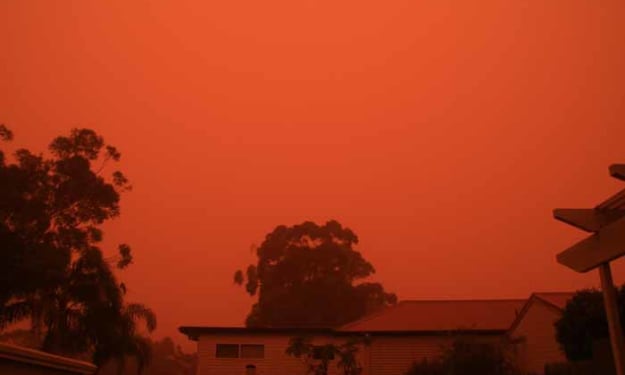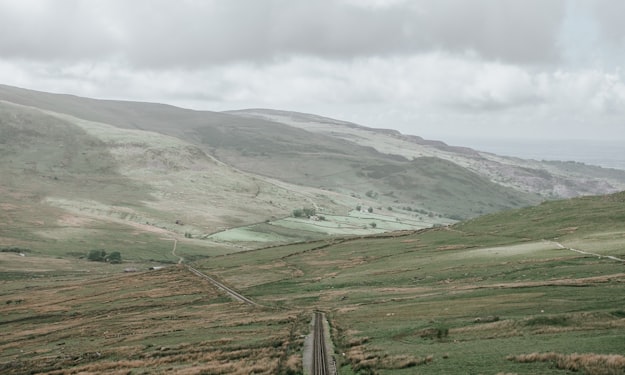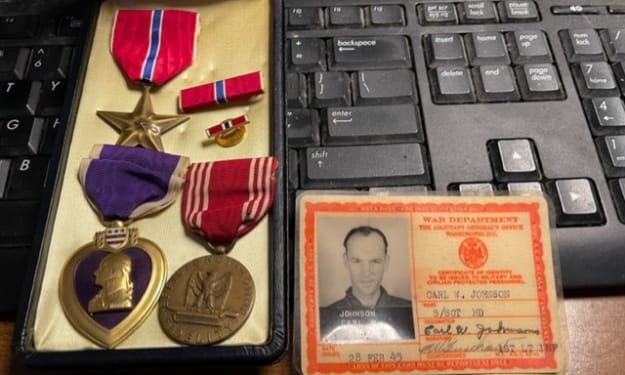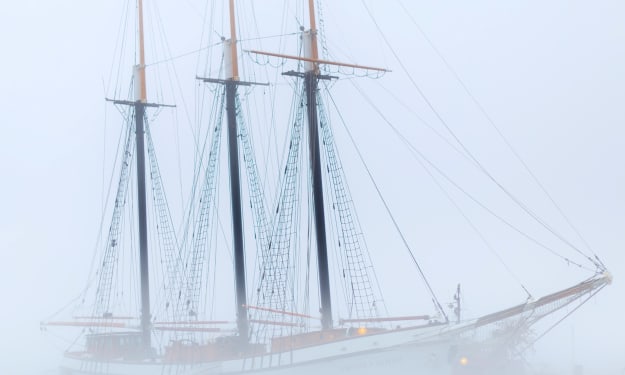
Randi O'Malley Smith
Stories (14/0)
The Earthlings
“Nobody can hear a scream in the vacuum of space, or so they say.” She turned and faced the class, meeting each student’s eyes in turn. “My parents were among the last generation born on Earth. When they were preparing to leave the planet, people started talking about an old film – that is, something like a physical print of a hologram story that needs special equipment to be seen – that used that line to make people afraid of non-terrestrial life. What they never mentioned is that it wouldn’t matter, because a person in the vacuum of space wouldn’t be able to scream. If one were to leave the biosphere without a breathing suit for more than a few seconds, the lack of atmospheric pressure would cause the air in one’s lungs to escape, and the oxygen in the blood is then drawn into the lungs to try to balance the pressure. Without oxygen reaching the brain and other vital organs, the body cannot survive for more than a minute, or maybe two if the person is very lucky. On the other hand, if the person returns to the biosphere within those first few seconds, there is a very good chance for them to make a full recovery.”
By Randi O'Malley Smith2 years ago in Fiction
Long Train Running
As I gradually swam into consciousness, I became aware of a myriad of other sensations. Pain… no, not quite pain. Fire? Heat. Intense heat on my face. And light, bright red through my eyelids, which felt sticky and wet. I felt weighed down by bricks, but also had a sense of movement. Yes, I was in some sort of moving vehicle, but lying prone on the floor, not belted into a seat. A van, or truck? No, the thrum of the wheels wasn’t quite right. With some effort, I rolled over so that the light wasn’t directly in my face. I raised my hands and wiped the stickiness from my face, slowly opened my eyes. I was in some sort of compartment with a door on one side and a window on the other, padded benches facing fore and aft to the direction of the movement. The glass in the door revealed a corridor with windows on the opposite side. A train. I looked around my compartment. Room for six, but I was alone. My backpack was on the luggage rack overhead. I sat up. The door was locked from the outside and I saw no mechanism for opening the windows even a crack for a bit of fresh air, but within the cubicle I was unbound.
By Randi O'Malley Smith2 years ago in Fiction
I Know What I Saw
The cabin in the woods had been abandoned for years, but one night, a candle burned in the window. I’d known about the cabin for years – decades really. It was about a mile up the trail through the trees behind Sally Baker Park, near the edge of town. It was maybe fifteen feet by fifteen feet, very small to be a home but just right for a hideout. Nobody knew who owned it although there were rumors, the more lurid of which were the most popular with the kids I’d gone to school with. Some said it was owned by a rich guy from the city who used it as a for playing perverted sex games. Not that any of the kids repeating this story had any idea what “perverted sex games” might consist of, but it sounded like something a person might get in trouble or maybe even go to hell for. Others said it must belong to a serial killer, or the owner had died a long time ago and his skeleton was still in there. In summer when the sun set late, groups of us would walk out to the cabin after dinner to see if anyone was there, but with only one narrow window there was never enough light to see much of anything inside. The front room appeared to be empty, but there was a wall with a door that led to a smaller, windowless room. No one ever dared to try the front door or to break the window. Our fear of whatever might be in there outweighed our desire to find out. Even the older high school kids didn’t hang around the cabin to drink or get high; instead, they followed a single-file path to a group of large boulders, each taller than three men, that obscured them from the view of anyone following the main trail.
By Randi O'Malley Smith2 years ago in Fiction
Remembrances of Corned Beef Hash
The coolest thing just happened. I’m working on a jewelry project and after re-shaping some sterling silver wire with a torch, I had to let it “pickle” – that is, rest in a weak acid bath to clean up any heat discoloration. While I waited, I went up to the attic where we have our extra storage to get a roll of paper towels. There’s a little cubby hole in the wall at the top of the stairs that we hadn’t yet looked in after my husband and I moved into my grandparents' old apartment, upstairs from the one I grew up in and where my mom still lives. Just for kicks I decided to open the door and see if there was anything in there. Mostly it was just junk – scraps of wallpaper and a jar of dried-up wallpaper paste that’s probably older than I am.
By Randi O'Malley Smith2 years ago in Families
The Dragon Master
“There weren't always dragons in the Valley.” Though it wasn’t spoken loudly – quite softly, in fact, despite its firmness – movement around the fire stopped and voices hushed, even those that had been boisterous with drink but a moment before. All eyes turned to look at the old Welshman, except for those of his grandson, sitting two seats over on the bench. The boy’s eyes rolled with a sigh. “There aren’t any dragons in the valley now, Papa.”
By Randi O'Malley Smith2 years ago in Fiction
I
T. S. Eliot wrote, "Here is how the world ends, not with a bang but with a whimper." I do not know how the world will end, but I am beginning to understand exactly what he meant. I am old, so very old. I have forgotten more history than has been written about. I age slowly; you might think me a grandfather, perhaps a great-grandfather, but I am ancient beyond anything you have ever seen. Only the rocks and oceans are older than I am. You may not think they are alive, but I know better. Sometimes I feel the rocks have more life than I do. Soon perhaps they will.
By Randi O'Malley Smith2 years ago in Fiction
The Stone Woman
I ran along the narrow path to the Temple of the Jaguar, occasionally darting or leaping to avoid a rock or trailing vine that might trip me. My parents and brothers were somewhere behind me, leading the men from our farm, who carried frames on their backs to transport the maize and other produce that we brought to the priests, both for their support and for the feasting in the coming days. My father and older brothers were armed to protect against bandits in the forest, as were most of the men. My mother held my youngest brother’s hand to keep him out of trouble. I ran ahead as I was small and quiet. I could spot bandits, scramble up the nearest tree before they saw me, and alert the men by calling in a voice like one of the brightly-colored birds of the forest. At least that was what my father and I had agreed; we had never yet encountered any bandits on the short trek between our farm and the temple plaza at Lam'an'ain. No one would want to risk being caught so close to the temples. Most captured thieves might be enslaved, but if the gods were angry, they might require additional sacrifices.
By Randi O'Malley Smith2 years ago in Fiction
- Top Story - October 2021
Widow's WalkTop Story - October 2021
Day after day, I climbed the steps to the cupola on the roof to watch for my husband’s ship. I hated that Charles had had to go back to the sea; only last year he had retired from the long trading voyages. With the profit of thirty years as captain, he had purchased his favorite ship and another of similar design, and a large warehouse. Thus settled in business, he had our present home built to his specification: red brick, with the servants’ quarters and kitchen on the ground floor, and dining hall and study above. On the top floor were the bedrooms, ours and two smaller rooms for our sons, Henry and William, all surmounted by a low-ceilinged attic. A trapdoor brought down a stairway to the roof, where the cupola, surrounded by a railing, stood – a captain’s walk, he called it, so that he might watch for his ships’ comings and goings. He had seen them in one of the southern colonies and determined that he should be the first merchant he knew to have one on his own home. His ships were called Salem Town and Colonial Bull – the latter a reference to his favorite tavern, the Bull’s Horns, which he also owned a half-stake in and where he always took his crews for dinner upon arriving safe in harbor and again before setting sail. I confess the ships looked the same as any other in the harbor to me, save that I recognized the officers aboard when they docked, but Charles could see a mast barely peeping over the horizon and know whether it was his own or another’s. He would watch as she approached the wharf to see that the proper number of men were on deck – there always being a risk of illness or accident at sea – and once she was tied up, he would hurry downstairs and across the square to supervise the unloading of cargo. There were usually contracts for most of the goods to be sold on to shops, but there were always some goods that someone was trying to move quickly, and Charles’s captains were savvy in what might or might not be worth finding room aboard for.
By Randi O'Malley Smith3 years ago in Fiction
The City Orphan
The sun hung low in the sky, as it had for, I think, the last two days. It could have been more, or less, than that – it was hard to tell anymore. I restlessly snapped open the heart-shaped locket that I wore around my neck. The catch was worn from the constant opening and closing that had started as a nervous habit and was now an almost constant tic. I looked at the photograph of my parents, faded and dusty, like my memories of them. They looked happy. It must have been before the war, maybe even before I was born. Nobody was ever happy after the war. Those who were left, anyway. After the bombs fell, clouds of dust hung in the air for months. Most of the people who survived the initial blasts got sick. Crops failed, but there weren’t that many left to feed by then anyway, so it didn’t matter as much. I was younger when it happened and whatever adults I happened to find myself around would usually make sure I got something. Now, at nineteen, I mostly kept to myself. Only a few hundred people were left camping in the buildings surrounding the massive crater that used to be New York City. I knew a few that were ok to trade with and a few that had to be avoided at all costs. Most of the rest were practically zombies, as hollowed out as the crumbling brownstones they occupied. They just kept moving day after day as though they were already dead and hadn’t realized it yet. Click. I snapped the locket shut again. Click. Open. The photo of my parents was still there, as faded as before. I tried to remember what they were like. Click.
By Randi O'Malley Smith3 years ago in Fiction
One Glass Of Wine
It’s been three months since my divorce and I keep coming back to the same bar where I met my ex-husband. A romantic might say it’s because I’m trying to get lost in the memories of the good times. A cynic might say it’s because I know there’s nothing for me here, so it’s safe. An honest person might say it’s a little bit of both.
By Randi O'Malley Smith3 years ago in Humans













